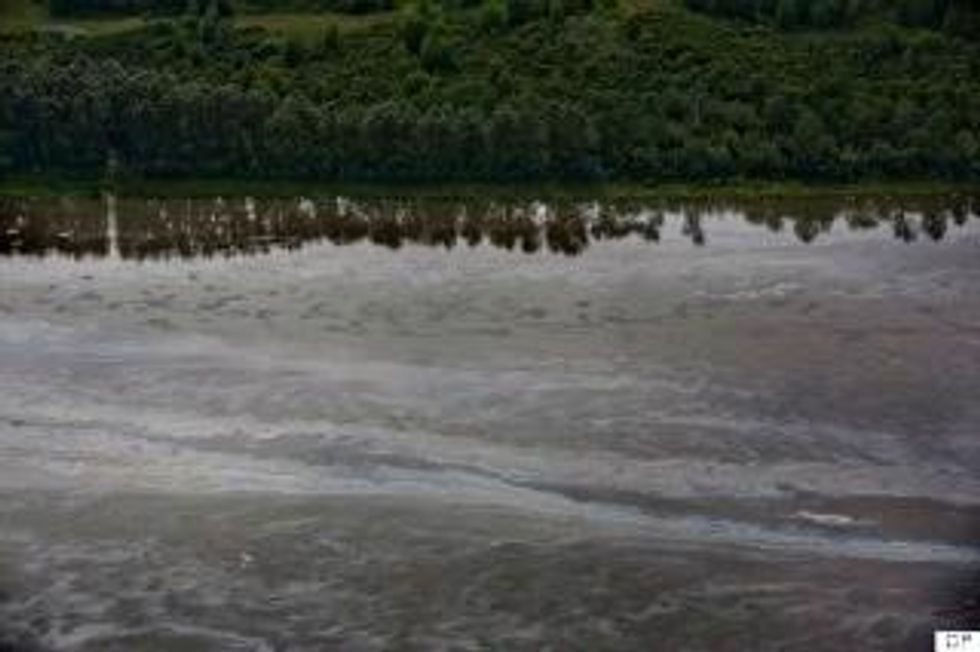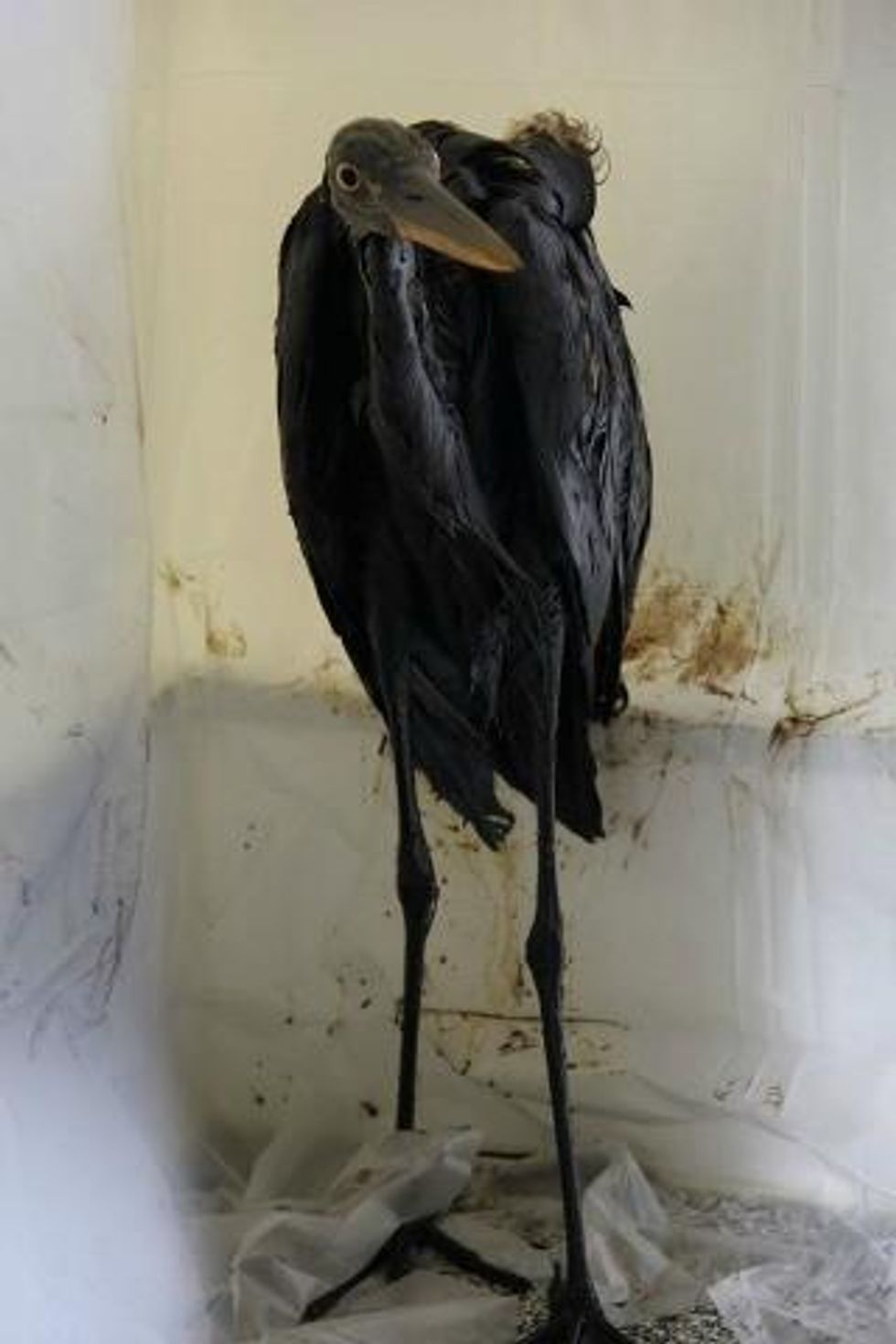Despite a devastating pipeline leak that flooded the North Saskatchewan River with 200,000 liters of tar sands crude last Thursday, Husky Energy waited until Monday to shut down the leaking pipeline. An executive with the oil behemoth said the company was "deeply sorry" for the incident while announcing the pipeline closure.
The apology and pipeline shutdown also only occurred after two cities were forced to shut off their water supplies and photos emerged of birds drenched in "very, very, very thick bitumen," according to Saskatoon-based rescue organization Living Sky Wildlife Rehabilitation.
Provincial officials and wildlife rescuers both warn that the effects of the spill will be long-term.
Meanwhile, booms laid on the river to contain the spill have been ineffective, a provincial official who wished to remain anonymous told the Canadian Press, as high water levels have lifted the oil over the barriers. As of Monday evening, less than half of the oil spilled had been recovered.
The pipeline shutdown also came despite Husky's announcement on Sunday that the spill cleanup was complete.
Canada's environmental agency announced Monday that it is investigating the spill.
Reuters reports on the oil's spread downstream:
The oil reached Prince Albert, population 35,000, hours earlier than expected on Monday, widening the impact and cost of the spill. Workers there raced to stretch a 30-kilometre hose to draw drinking water from another source.
A sheen was visible on the river in the morning, spurring the city to shut its water treatment plant intake, said city manager Jim Toye. It has two days worth of stored water before it must find another source.
"We thought we had more time," Toye said in an interview. "We (will) really hit the wall after two days."
Less than half of the 1,572 leaked barrels of oil had been recovered as of Monday, Saskatchewan environment official Wes Kotyk said.
Upstream of Prince Albert, the city of North Battleford stopped drawing drinking water from the river last week.
Prince Albert residents are stockpiling clean water in bathtubs and Tupperware containers, CBC reports, and city officials say they will seek compensation from Husky for the disastrous spill.
Another provincial official told the Huffington Post that North Battleford's and Prince Albert's drinking water could remain unsafe to drink for months.
North Battleford's residents are relying on well water, in the meantime. As for Prince Albert, Reuters reports: "Once Prince Albert's stored water is exhausted, it hopes to use rainfall collected in a retention pond, buying itself four more days. After that it would rely on water from a 12-inch (30 centimeter) diameter hose to the South Saskatchewan River, running along a highway."
A reporter with the CBC tweeted footage of a construction crew from Prince Albert "scrambling" to set up that hose:
Yet even that new arrangement may not be enough, as Toye told Reuters it would only stretch Prince Albert's water supply for another two months. Sam Ferris from Saskatchewan's Water Security Agency commented to the Huffington Post that the tainted water supply is "not going to be a short-term event. It could go on for some time."
Meanwhile, local wildlife rescue groups have set up a triage station near the origin of the spill in Maidstone, Saskatchewan, to help clean oil-drenched wild animals.
So far, three birds--a great blue heron, a Canada goose, and a sparrow--as well as a garter snake have been taken in for treatment. The sparrow has died. Rescuers expect many more animals will be taken in for clean-up in the days to come.
Jan Shadick from Living Sky Wildlife Rehabilitation spoke to CBC about the tragedy:
Shadick said treating the birds that have been recovered, and the possibility of many more birds needing treatment, filled her with "great sadness."
"For me, it's just really overwhelmingly sad to see these birds drenched in this black oil and know that I have to wait to wash them and do something about it. And to just see the struggle, I guess, in their eyes," she said.
"Perhaps it's the potential that there are hundreds and hundreds of them and my, at the moment, sense of helplessness at [not] being able to fix it immediately."
And despite the harm to wildlife and people's drinking water, Alberta Premier Rachel Notley defended the safety of pipelines to transport fossil fuels.
"Even with this spill it remains the case that absolutely the safest way to transport oil and gas is by way of pipeline," she told the Canadian Press.
"Had a spill occurred on rail there might well be injuries involved. In everything you do there are risks, but I would suggest overall the risks [of pipelines] are low," Notley added.





